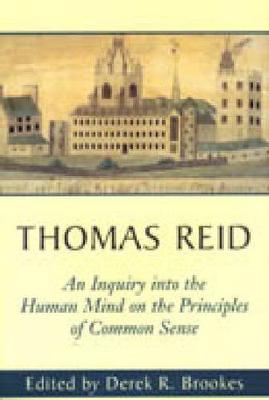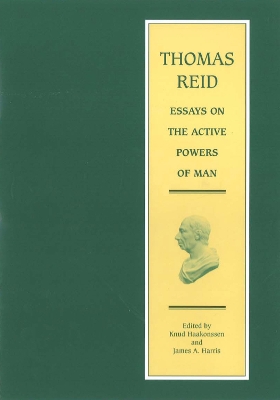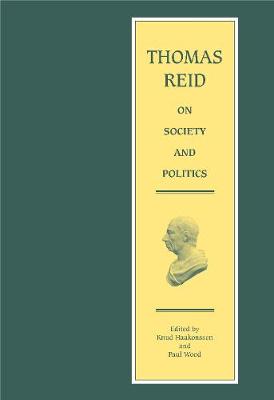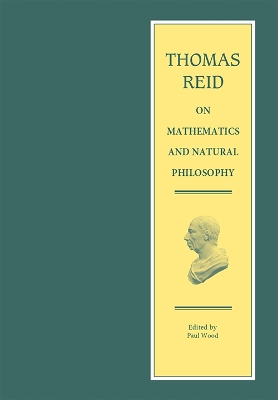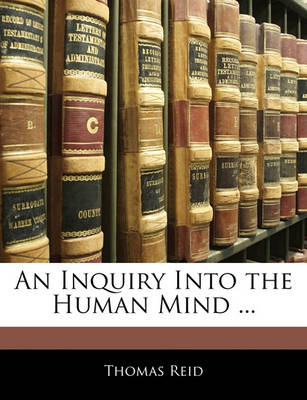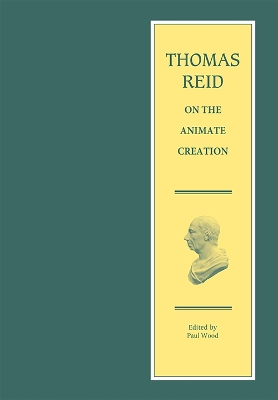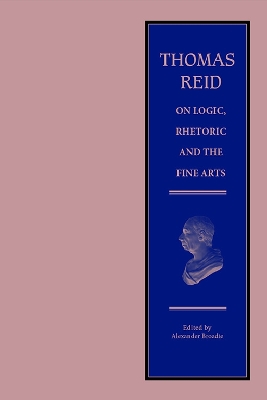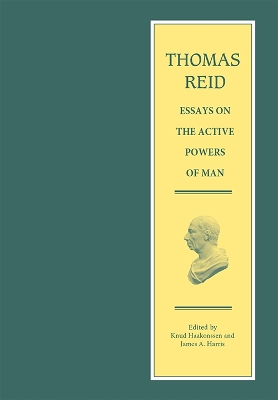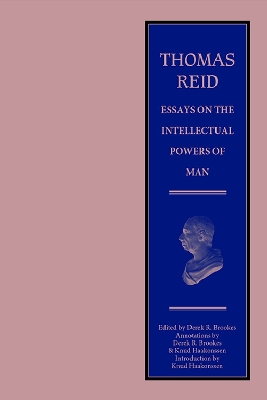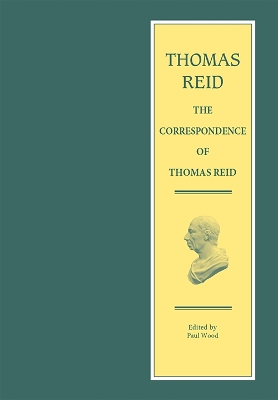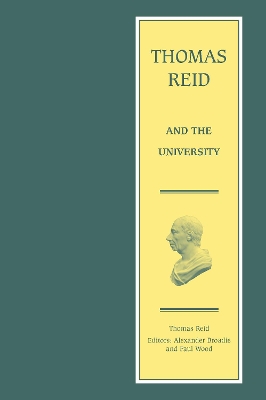Edinburgh Edition of Thomas Reid
5 primary works • 12 total works
Book 1
Thomas Reid's An Inquiry into the Human Mind on the Principles of Common Sense
by Thomas Reid
Thomas Reid's Inquiry has long been recognized as a classic philosophical text. Since its first publication in 1764, there have followed no less than forty editions. The proliferation of secondary literature further indicates that Reid's work is flourishing as never before. Yet Reid scholars have been acutely aware of proceeding without the full textual evidence. There exist thousands of unpublished manuscript pages in Reid's hand, many of which relate directly to the composition of Inquiry. Furthermore, no account has been taken of the successive alterations made to the four editions published in Reid's lifetime. The present edition, therefore, aims to present a complete, critically edited text of the Inquiry, accompanied by a judicious selection of manuscript evidence relating to its composition.
The volume contains an editor preface presenting the raison d'etre for the edition followed by an introduction giving the central argument of the Inquiry by means of an historical and philosophical account of its formation; an account which also indicates the significance of the MSS contained in the section containing related documents. The critical text is based on the fourth life-time edition (1785), while the textual notes include bibliographical details and allusions, translations, references to secondary literature, and selected passages from Reid's MSS.
Book 6
Book 7
Essays on the Active Powers of Man (1788) was Thomas Reid's last major work. It was conceived as part of one large work, intended as a final synoptic statement of his overall philosophy. The first and larger part was published three years earlier as Essays on the Intellectual Powers of Man (edited as volume 3 of the Edinburgh Edition of Thomas Reid). These two works are united by Reid's basic philosophy of Common Sense, which sets out native principles by which the mind operates in both its intellectual and active aspects. The Active Powers shows how these principles are involved in volition, action, and the ability to judge morally. Reid gives an original twist to a libertarian and realist tradition that was prominently represented in eighteenth-century British thought by such thinkers as Samuel Clarke and Reid's near contemporary and acquaintance, Richard Price.
Traditionally seen as an epistemologist, Reid has in much recent work emerged as a significant contributor to the philosophy of action and to ethics. This edition of the Active Powers will be of interest not only to historians of philosophy but also to philosophers working on the theory of action, on the problem of free will, and in moral psychology and meta-ethics.
Book 8
Thomas Reid on Society and Politics reveals the Enlightenment philosopher's acute comments on the Scottish political, social, and economic scene. Thomas Reid may not have published much on politics, but his manuscripts reveal that he was deeply concerned with social, political, and economic issues throughout his career. Published here for the first time, Reid's Glasgow lecture notes and his papers to learned societies in Aberdeen and Glasgow show that he was an acute commentator on contemporary politics and that his theoretical ideas framed solutions to some of the practical political and economic problems of his day. This volume explores Reid's eclectic system of political economy, which had considerable affinities with the work of Sir James Steuart. It provides an important contemporary template for comparison with Adam Smith, Reid's predecessor in the Glasgow chair of moral philosophy. It shows the continuing influence and transformation of long-standing paradigms within Anglo-Scottish thought. It includes a contextualising and critical introduction. All of the manuscripts are fully annotated with explanatory and textual notes.
Book 9
Thomas Reid on Mathematics and Natural Philosophy
by Paul Wood, Thomas Reid, Andrea Eckersley, Antonia Pont, and Jon Roffe
A philosopher, scholar of the natural world, and gifted mathematician, Thomas Reid holds a distinctive place in the Scottish Enlightenment. This volume reconstructs Reid's lifelong engagement with the physical sciences and makes clear why these fields were central to his epistemology and moral and social philosophy.
Placing Reid's "Essay on Quantity" alongside his previously unpublished writings on mathematics and the physical sciences, Paul Wood shows that, in contrast to Francis Hutcheson and David Hume, Reid was a philosopher rooted not only in the science of man but also in the sciences of nature. A self-professed Newtonian, Reid honed his observational and experimental skills while investigating a broad range of theoretical problems in astronomy, mechanics, optics, electricity, and chemistry. He championed the practical application of mathematics, immersed himself in Newton's mathematical corpus, and addressed foundational questions such as the conceptual basis of Euclidean geometry.
Comprehensive and invaluable, this volume demonstrates that Reid built on his own early precociousness in mathematics to become one of the leading mathematicians and natural philosophers of the Scottish Enlightenment.
In addition, this volume continues the Edinburgh Edition's attractive combination of manuscript material and published work, in this case Reid's important and well known essay on Aristotle's logic. This text was corrupted in older editions of Reid's works and is now restored to the state in which Reid left it. This volume underscores Reid's great and growing significance, viewed both as an historical figure and as a philosopher. At the same time, it is of great interdisciplinary importance. While the material emerges directly from the core of Reid's philosophy, as now understood, it will appeal widely to people in literary, cultural, historical and communications studies. In this regard, the present volume is a true fruit of the Scottish Enlightenment.
Reid's major positive contribution to philosophy is a detailed account of the various innate powers of the mind. While particularly influential in the first half of the nineteenth century, Reid's work has retained a significant role in philosophy, not least in recent years. At the same time, his role in the Scottish Enlightenment is becoming much better understood. This is the only properly established text. It is accompanied by manuscript lectures on the nature and immortality of the soul, as well as helpful editorial annotation and introduction, making it useful to a wide variety of readers. Features * Accurate, reliable and critically established text * The Introduction explains the work's genesis and its place in Reid's system * Annotations provide an understanding of Reid's context * An Appendix contains manuscript material covering an important topic not represented in the hitherto published work
